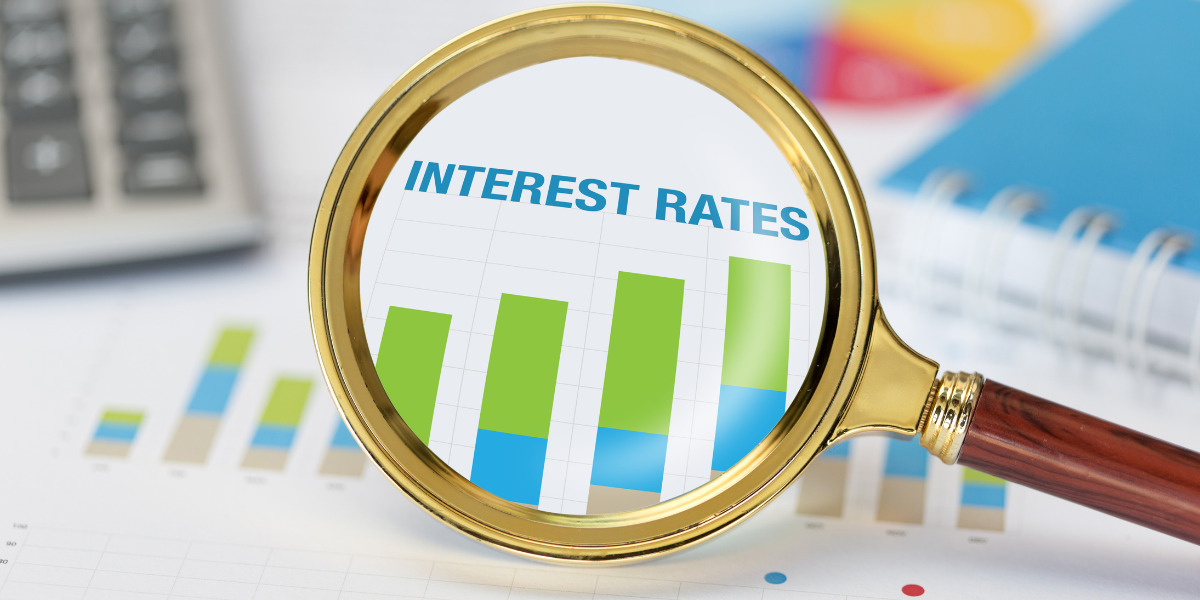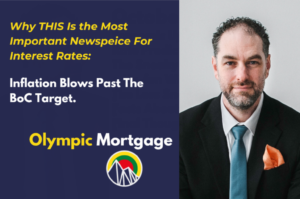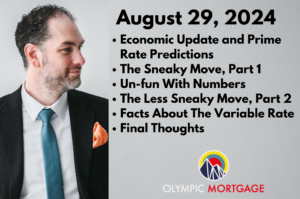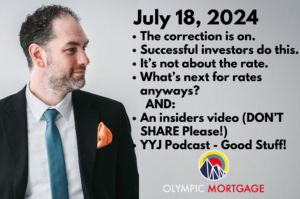[av_textblock textblock_styling_align=” textblock_styling=” textblock_styling_gap=” textblock_styling_mobile=” size=” av-desktop-font-size=” av-medium-font-size=” av-small-font-size=” av-mini-font-size=” font_color=” color=” id=” custom_class=” template_class=” av_uid=’av-kyuj0xv8′ sc_version=’1.0′ admin_preview_bg=”]
Variable Rate Mortgage Holders:
Some Important Context in Light of Today’s Interest Rate Announcement
[/av_textblock]
[av_one_full first min_height=” vertical_alignment=’av-align-top’ space=” row_boxshadow=” row_boxshadow_color=” row_boxshadow_width=’10’ custom_margin=” margin=’0px’ mobile_breaking=” mobile_column_order=” min_col_height=” padding=” svg_div_top=” svg_div_top_color=’#333333′ svg_div_top_width=’100′ svg_div_top_height=’50’ svg_div_top_max_height=’none’ svg_div_top_flip=” svg_div_top_invert=” svg_div_top_front=” svg_div_top_opacity=” svg_div_top_preview=” svg_div_bottom=” svg_div_bottom_color=’#333333′ svg_div_bottom_width=’100′ svg_div_bottom_height=’50’ svg_div_bottom_max_height=’none’ svg_div_bottom_flip=” svg_div_bottom_invert=” svg_div_bottom_front=” svg_div_bottom_opacity=” svg_div_bottom_preview=” border=” border_style=’solid’ border_color=” radius=” column_boxshadow=” column_boxshadow_color=” column_boxshadow_width=’10’ background=’bg_color’ background_color=” background_gradient_direction=’vertical’ background_gradient_color1=’#000000′ background_gradient_color2=’#ffffff’ background_gradient_color3=” src=” background_position=’top left’ background_repeat=’no-repeat’ highlight=” highlight_size=” animation=” link=” linktarget=” link_hover=” title_attr=” alt_attr=” mobile_display=” mobile_col_pos=’0′ id=” custom_class=” template_class=” aria_label=” av_uid=’av-j62uv’ sc_version=’1.0′]
[av_image src=’https://olympicmortgages.ca/wp-content/uploads/2022/09/Interest-Rate-News-1030×515.jpg’ attachment=’7220′ attachment_size=’large’ copyright=” caption=” image_size=” styling=” box_shadow=’none’ box_shadow_width=’10’ box_shadow_color=” align=’center’ font_size=” overlay_opacity=’0.4′ overlay_color=’#000000′ overlay_text_color=’#ffffff’ animation=’no-animation’ animation_duration=” animation_custom_bg_color=” animation_z_index_curtain=’100′ parallax_parallax=” parallax_parallax_speed=” av-desktop-parallax_parallax=” av-desktop-parallax_parallax_speed=” av-medium-parallax_parallax=” av-medium-parallax_parallax_speed=” av-small-parallax_parallax=” av-small-parallax_parallax_speed=” av-mini-parallax_parallax=” av-mini-parallax_parallax_speed=” hover=” appearance=” css_position=” css_position_location=’,,,’ css_position_z_index=” av-desktop-css_position=” av-desktop-css_position_location=’,,,’ av-desktop-css_position_z_index=” av-medium-css_position=” av-medium-css_position_location=’,,,’ av-medium-css_position_z_index=” av-small-css_position=” av-small-css_position_location=’,,,’ av-small-css_position_z_index=” av-mini-css_position=” av-mini-css_position_location=’,,,’ av-mini-css_position_z_index=” transform_perspective=” transform_rotation=’,,,’ transform_scale=’,,’ transform_skew=’,’ transform_translate=’,,’ av-desktop-transform_perspective=” av-desktop-transform_rotation=’,,,’ av-desktop-transform_scale=’,,’ av-desktop-transform_skew=’,’ av-desktop-transform_translate=’,,’ av-medium-transform_perspective=” av-medium-transform_rotation=’,,,’ av-medium-transform_scale=’,,’ av-medium-transform_skew=’,’ av-medium-transform_translate=’,,’ av-small-transform_perspective=” av-small-transform_rotation=’,,,’ av-small-transform_scale=’,,’ av-small-transform_skew=’,’ av-small-transform_translate=’,,’ av-mini-transform_perspective=” av-mini-transform_rotation=’,,,’ av-mini-transform_scale=’,,’ av-mini-transform_skew=’,’ av-mini-transform_translate=’,,’ mask_overlay=” mask_overlay_shape=’blob’ mask_overlay_size=’contain’ mask_overlay_scale=’100%’ mask_overlay_position=’center center’ mask_overlay_repeat=’no-repeat’ mask_overlay_rotate=” mask_overlay_rad_shape=’circle’ mask_overlay_rad_position=’center center’ mask_overlay_opacity1=’0′ mask_overlay_opacity2=’1′ mask_overlay_opacity3=” link=” target=” title_attr=” alt_attr=” img_scrset=” lazy_loading=’disabled’ id=” custom_class=” template_class=” av_element_hidden_in_editor=’0′ av_uid=’av-l0v9r0k2′ sc_version=’1.0′ admin_preview_bg=”][/av_image]
[/av_one_full][av_hr class=’invisible’ icon_select=’yes’ icon=’ue808′ font=’entypo-fontello’ position=’center’ shadow=’no-shadow’ height=’50’ custom_border=’av-border-thin’ custom_width=’50px’ custom_margin_top=’30px’ custom_margin_bottom=’30px’ custom_border_color=” custom_icon_color=” id=” custom_class=” template_class=” av_uid=’av-4brzlz’ sc_version=’1.0′ admin_preview_bg=”]
[av_textblock textblock_styling_align=” textblock_styling=” textblock_styling_gap=” textblock_styling_mobile=” size=” av-desktop-font-size=” av-medium-font-size=” av-small-font-size=” av-mini-font-size=” font_color=” color=” id=” custom_class=” template_class=” av_uid=’av-l0v9mgb5′ sc_version=’1.0′ admin_preview_bg=”]
The Bank of Canada (or BoC) has announcedd a 0.75% rate increase to the BoC prime rate, bringing the commercial bank’s prime rate to 5.45%. This is now the 5th rake hike in a row from the BoC, in an effort to bring inflation closer to their target of 2% per year.
Some important context:
The economy is already starting to show signs of slowing, markets are cooling down, and our housing market has slowed. Inflation has now dropped considerably in the last few months. These are all signs that the interest rate hike cycle will end soon, either after today’s rate hike, or most likely after one more small interest rate hike later this fall.
The increases in the borrowing rate have had their intended consequences, indicating that we are near, or at the top of where rates will go.
If you are worried about your payments, just remember – this is likely the worst of it, and rates will come back down.
We have short memories.
Why do I say this? Well, when things are at their worst, our thoughts and judgements are dominated by what is happening right now, and less so on the big picture. We have short memories, and easily forget all of the positives about holding a variable rate mortgage.
So I’ll take this opportunity to remind you of a few very crucial points when thinking about your variable rate mortgage.
1. History has shown that over time, people who hold variable rate mortgages save more on interest over time, no matter when you obtain the mortgage.
2. Also, rates do not stay high for long periods of time. When looking at any prime rate graph over time, you can see that the valleys are longer than the peaks. The BoC uses interest rates as a tool to slow inflation, but in times of recession or instability, they lower interest rates to spur on economic activity.
While we do not know how long rates will stay up for, we have to remember that the interest rate cycle never stays at it’s peak for a long time. Prime rate is supposed to fluctuate in response to how the economy is doing, and we can always bet on things changing, which then forces the BoC to act.
So, the variable rate will come down. How long will this take? It could take 3 months, 6 months, or a year. It all depends on how our economy reacts to today’s and previous rate hikes. Bringing me to my next point – things happen!
3. Things happen! And whenever “things happen”, rates come down in order to keep our economy running at a reasonable pace. Over the last 22 years, many world events have caused interest rates to come down. 9-11. The financial crisis. Various wars. Covid-19.
Just think of all the factors that could affect our economy. Natural disasters are becoming more prevalent. We have a very politically unstable neighbor to the south of us, which also happens to be our largest trading partner and the largest economy in the world. War in Europe causing food and energy crisis. There are dictators and unstable governments in many countries making things unpredictable.
We are in a world where change is constant. We can almost bet on something happening that will force our government to act and lower rates again.
Fixed Rates Have Peaked and Will Come Down.
If you are considering locking in because you cannot bear any more hikes, consider instead what changes you can make to budget until the rates come back down. The main reason being, is that if you lock in now, you are locking into a high rate anyways, and therefore locking in a much higher payment anyways.
Bond yields have already started to drop, indicating that fixed rates will be coming down soon too. If you lock in now, you’ll lock in at the peak of rates.
Instead of locking in, plan for 6 more months to a year of higher payments. Adjust your budget if required. We understand, no one likes to have to adjust their budget to pay more interest, but the alternative of locking in now is likely worse, as you’d be locking in a higher rate, and a higher payment, anyways.
Remember the Pros of a Variable Rate.
Lastly, I ask you to remember the pros about being in a variable rate. One of the main advantages of a variable rate is the payout penalty will be much lower than the prepayment penalty on a fixed rate, especially if your mortgage is with one of the big 5 banks. So, when rates do drop, and you want to take advantage of those lower rates by switching your mortgage, you will thank yourself for keeping your variable rate mortgage with the lower and predictable penalty.
In summation, if you have a variable rate, don’t take that knee jerk reaction because you are panicked. Instead, plan ahead, make adjustments, and ride out the top of the wave.
Trigger Rates
Anyone with a variable rate mortgage with static payments (meaning they don’t increase when rates increase) should be aware of their trigger rate. The trigger rate is the rate at which the regular mortgage payments no longer covers the accrued interest.
At this point you are paying interest only and nothing towards the principal. When you reach your trigger rate the lender will contact you to raise your payment.
How do you find your trigger rate?
You should be able to find it in your mortgage contract. If not, we suggest calling your lender as it may have changed if you’ve made any changes to your mortgage throughout the term (ie: lump sum payments)
Are there options other than increasing the payment?
Likely yes. Your lender may offer you the option to pay a lump sump which would bring your current payment back to an interest & principal payment. You may also consider refinancing or extending out your amortization if the new higher payment doesn’t fit into your monthly budget.
As always, if you or anyone you know are wanting to talk about your mortgage and mortgage rates, my team and I are standing by and ready to help.
Thanks for reading,
David Steinberg, AMP, BComm
Mortgage Broker and Owner
Olympic Mortgage
Want to chat about your mortgage or explore your options:
Contact us below or get started here.
[/av_textblock]
[av_hr class=’invisible’ icon_select=’yes’ icon=’ue808′ font=’entypo-fontello’ position=’center’ shadow=’no-shadow’ height=’50’ custom_border=’av-border-thin’ custom_width=’50px’ custom_margin_top=’30px’ custom_margin_bottom=’30px’ custom_border_color=” custom_icon_color=” id=” custom_class=” template_class=” av_uid=’av-1yj57r’ sc_version=’1.0′ admin_preview_bg=”]
[av_contact title=’Contact Us’ button=’Submit’ on_send=” sent=’Thank you, your message has been sent! One of our Mortgage Specialists will be in contact with you shortly.’ link=’manually,http://’ captcha=” captcha_theme=’light’ captcha_size=’normal’ captcha_score=’0.5′ email=’info@olympicmortgages.ca’ from_email=’info@olympicmortgages.ca’ subject=’Contact submission from blog – 3D Refinancing’ autoresponder_email=’info@olympicmortgages.ca’ autoresponder_reply_to=” autoresponder_subject=” autorespond=” autorespond_after=” form_align=” color=” heading_tag=” heading_class=” alb_description=” id=” custom_class=” template_class=” aria_label=” av_uid=’av-l4iivcd2′ sc_version=’1.0′ admin_preview_bg=”]
[av_contact_field label=’Name’ type=’text’ check=’is_empty’ options=” multi_select=” av_contact_preselect=” element_display=” width=” headline_tag=’h3′ av_uid=’av-5qqx4c’ sc_version=’1.0′][/av_contact_field]
[av_contact_field label=’E-Mail’ type=’text’ check=’is_email’ options=” multi_select=” av_contact_preselect=” element_display=” width=” headline_tag=’h3′ av_uid=’av-3hlyss’ sc_version=’1.0′][/av_contact_field]
[av_contact_field label=’Message’ type=’textarea’ check=’is_empty’ options=” multi_select=” av_contact_preselect=” element_display=” width=” headline_tag=’h3′ av_uid=’av-2ncpu4′ sc_version=’1.0′][/av_contact_field]
[/av_contact]
[av_textblock textblock_styling_align=” textblock_styling=” textblock_styling_gap=” textblock_styling_mobile=” size=” av-medium-font-size=” av-small-font-size=” av-mini-font-size=” font_color=” color=” id=” custom_class=” template_class=” av_uid=’av-2dr79g’ sc_version=’1.0′ admin_preview_bg=”]
At Olympic Mortgage we strive to answer all of your questions in a timely manner, and ensure that our clients are well informed about their options. If you have any questions about your current mortgage or future financing, please don’t hesitate to reach out.
Lowest Rates. Local Knowledge.
We are your South Vancouver Island Mortgage Pros.
[/av_textblock]




